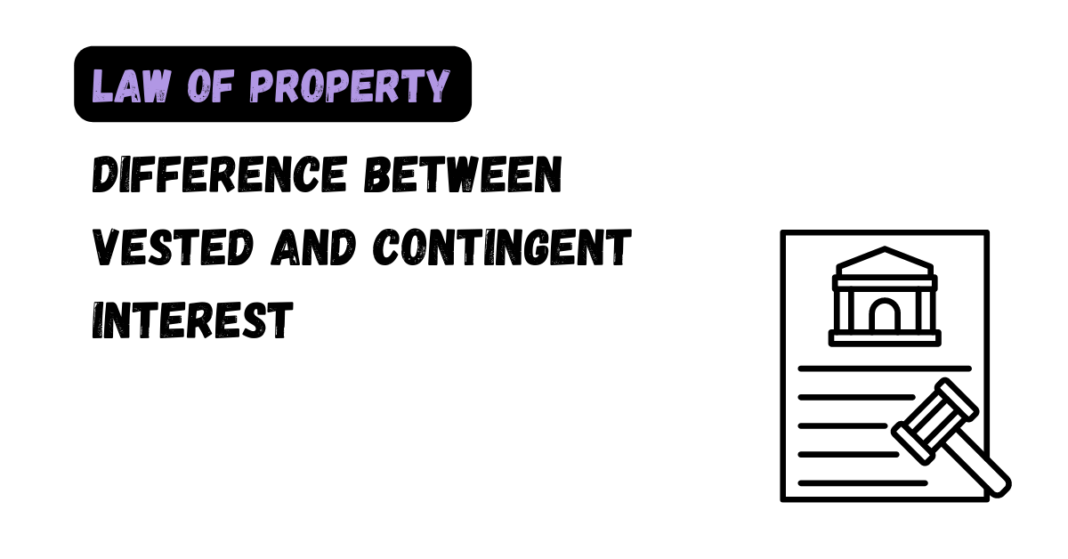Vested and contingent interests are two types of legal interests that can be created in property. They differ based on the conditions that must be met for the interest to take effect.
Meaning of Vested Interest
A vested interest is an interest in property that is present and certain. This means that the individual has a current right to the property that is not dependent on any future event.
Example: if someone inherits property from a deceased relative, the interest is vested because they have an immediate and certain right to the property.
Meaning of Contingent Interest
A contingent interest, on the other hand, is an interest in property that is dependent on a future event that may or may not occur. The individual does not have a present right to the property, but will acquire the interest if a certain condition is met.
Example: if someone creates a trust for the benefit of their grandchildren, the grandchildren’s interest is contingent upon them being born alive.
| BASIS FOR COMPARISON | VESTED INTEREST | CONTINGENT INTEREST |
|---|---|---|
| Definition | An interest in property that is certain to take effect, either immediately or at a future date, regardless of any conditions or contingencies. | An interest in property that is dependent on the occurrence of a certain event or condition. |
| Ownership | Owned by the person or entity that holds the interest. | Not owned by the person or entity that holds the interest until the event or condition on which the interest depends actually occurs. |
| Transferability | Freely transferable to another person or entity. | Cannot be transferred until the event or condition on which the interest depends actually occurs. |
| Risk | Little or no risk, since it is certain to take effect. | Carries a certain amount of risk since it is dependent on an uncertain event or condition. |
| Duration | Generally of unlimited duration. | Typically of limited duration, since it depends on a certain event or condition. |





